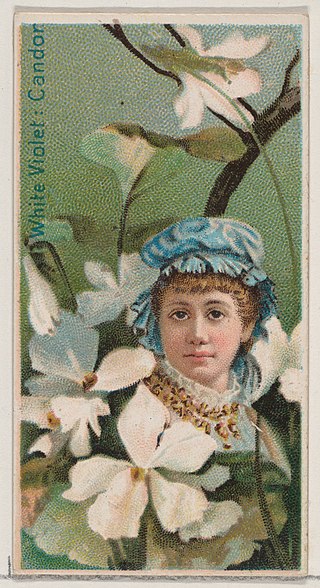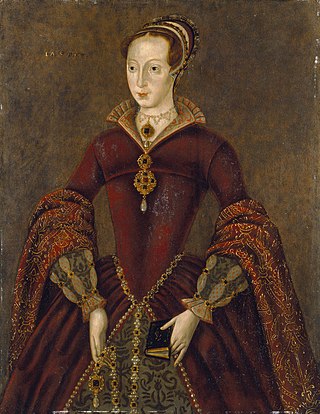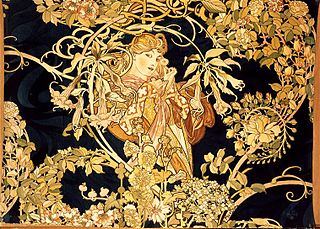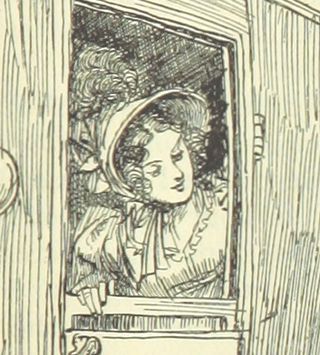Amy is an English feminine given name, the English version of the French Aimée, which means beloved. It was used as a diminutive of the Latin name Amata, a name derived from the passive participle of amare, “to love”. The name has been in use in the Anglosphere since the Middle Ages. It was among the 50 most popular names for girls in England between 1538 and 1700. It was popularized in the 19th century in the Anglosphere by a character in Sir Walter Scott's 1821 novel Kenilworth, which was based on the story of Amy Robsart. Enslaved Black women in the United States prior to the American Civil War were more likely to bear the name than white American women because slave masters often chose their names from literary sources. The name declined in use after 1880 but was revived due to the hit song Once in Love with Amy from the 1948 Broadway musical Where's Charley?. The name peaked in usage in the United States between 1973 and 1976, when it was among the five most popular names for American girls. It remained among the top 250 names for American girls in the early 2020s.

Lucy is an English feminine given name derived from the Latin masculine given name Lucius with the meaning as of light. Alternative spellings are Luci, Luce, Lucie, Lucia, and Luzia.

Amelia is a feminine given name. Its English form was likely influenced by the names Amalia, derived from the German word amal meaning work, and Emilia, which is derived from the name of the Roman Aemilia gens. The name of the gens is likely derived from the Latin word aemulus, meaning rival. The name Amelia has been associated with both names as well as with the name Emily, also derived from Emilia.
Maggie is a common short form of the name Magdalena, Magnolia, Margaret, Marigold.

Harriet is a female name.
Lillian, also spelt Lilian, Lilliann, or Lilliane, is a female given name. Its origin is the Latin word Lilium (lily).
Nelly and Nellie are female given names, also used as nicknames, which are derived from the names Helen, Ellen, Petronella, Danielle, Cornelia, Eleanor, Janelle, Chanelle, Penelope, Elizabeth, or Noelia.

Violet is a female given name which comes from the eponymous flower. As with other such names, its popularity has varied dramatically over time. Flower names were commonly used from about 1880 through about 1910 in the United States, with usage dropping throughout the next 80 years or so; Violet was the 88th most frequent girls' given name in 1900, dropping below position 1000 by 1960. In 1990, the name appeared again in the top 1000 at position 289 and subsequently increased in popularity. It was the 20th most used name for newborn American girls in 2022. It rose rapidly in popularity for American girls born that year, one of several fashionable names that contain a letter v.

Hannah spelled Hanna, Hana, Hanah, or Chana, is a feminine given name of Hebrew origin. It is derived from the root ḥ-n-n, meaning "favour" or "grace". A Dictionary of First Names attributes the name to a word meaning 'He (God) has favoured me with a child'. Anne, Ana, Ann, and other variants of the name derive from the Hellenized Hebrew: Anna (Ἅννα)

Rachel, meaning "ewe", is a feminine given name of Hebrew origin, popularized by the biblical figure Rachel, the wife of Israelite patriarch Jacob.
Jenny was originally the diminutive form of Jane, but it is now associated with Jennifer.

Anna is a feminine given name, the Latin form of the Greek: Ἄννα and the Hebrew name Hannah, meaning "favour" or "grace".
Émilie is a French female given name. It is the feminine form of the male name Émile.

Jane is a feminine given name. It is the English form of Jehanne, the Old French feminine form of Iohannes, a Latin form of the Greek name Ἰωάννης (Iōannēs), which is ultimately derived from the Hebrew name יוֹחָנָן (Yochanan), a short form of the name יְהוֹחָנָן (Yehochanan), meaning "Yahweh is merciful".

Helen is a feminine given name derived from the Ancient Greek name Ἑλένη, Helenē, which descends from Proto-Hellenic *Ηwelénā, from a pre-Hellenic or late Proto-Indo-European *Swelénā, ultimately derived from the Indo-European root *swel-.

Daisy is a feminine given name. The flower name comes from the Old English word dægeseage, meaning "day's eye". The name Daisy is therefore ultimately derived from this source. Daisy is also a nickname for Margaret because Marguerite, the French version of the latter name, is also a French name for the oxeye daisy.
Charlotte is a feminine given name, a female form of the male name Charles. It is of French or Italian origin, meaning "free man" or "petite". It dates back to at least the 14th century. Other variants of the name and related names include Charlie, Lottie, Lotte, Karlotta, Carlota, and Carlotta.
Emilia is a feminine Italian given name of Latin origin. The name is popular all over Europe and the Americas. The corresponding masculine name is Emilio. Emily is the English form of the Italian name.

Emma is a feminine given name. It is derived from the Germanic word ermen, meaning "whole" or "universal". It likely originated as a short form of names such as Ermengarde or Ermentrude. Its earliest use begins at least from the early seventh century, with Frankish royal daughter Emma of Austrasia and the wife of Eadbald of Kent found in written sources. Its popularity in the medieval era increased because it was the name of Emma of Normandy, mother of Edward the Confessor. Emmeline is a Norman variant of Emma that was introduced to England by the Norman invaders in the 11th century. The name is etymologically unrelated to Amalia, Amelia, Emilia, and Emily, all of which are derived from other sources, but all of these names have been associated with each other due to their similarity in appearance and sound. Emma has been used as a short form of some of these names or shares diminutives such as Em or Emmy with them.
Caroline is a feminine given name, derived from the male Charles. Common nicknames and variations include Callie, Carol, Carole, Carolina, Carolyn, Carly, Carrie, and Caz.










